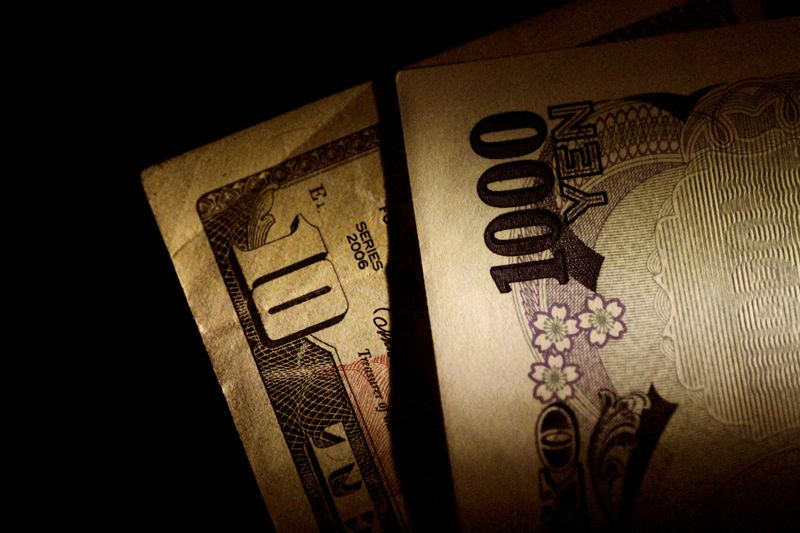(Reuters) - Japan escalated its warnings on Friday against sharp falls in the yen, expressing "concern" over the moves in a rare joint statement by the government and the central bank, leaving investors wary about the potential for intervention.
It is more than a decade since Japan intervened directly in the foreign exchange market and more than two decades since it intervened to support its currency.
Here is a timeline of selected moves in FX markets by the Bank of Japan.
(Graphic on, Japan's history of yen interventions: https://fingfx.thomsonreuters.com/gfx/mkt/xmpjoykbovr/Pasted%20image%201650518854154.png)
1973 - Japanese monetary authorities decide to let the yen float freely against the greenback.
1985 - The Group of Five industrial nations, the predecessor to the G7, sign the Plaza Accord in which they agree that the dollar is overvalued and that they will move to weaken it.
1987 - In February, six of the G7 nations sign the Louvre Accord, which aims to stabilise currencies and halt the dollar's broad decline.
1988 - On Jan. 4, the dollar falls to a post World War Two low of 120.45 yen in Tokyo trade. The Bank of Japan intervenes to buy dollars and sell yen.
1991 - 1992 - Bank of Japan intervenes to support the yen, selling U.S. dollars.
1993 - Bank of Japan sells yen through much of the year to curb its strength.
April 1994 - August 1995 - Dollar sinks to a record low against the German mark and a post-war low against the yen. The United States intervenes repeatedly, often with Japanese and European central banks, to prop up the greenback.
1997 - 1998 - The Asian financial crisis sees the yen weaken to nearly 148 to the dollar in August, even after U.S. authorities join the Bank of Japan to buy yen.
January 1999 to April 2000 - Bank of Japan sells yen at least 18 times, including once via the Federal Reserve and once via the European Central Bank, due to worries a strong yen will choke off an economic recovery. Yen continues to strengthen.
Sept 2001 - Bank of Japan intervenes to sell yen after the Sept. 11 attacks in the United States. The ECB and New York Federal Reserve both operate on behalf of the BOJ.
May-June, 2002 - Bank of Japan intervenes to sell yen, often supported by the Federal Reserve and ECB. The yen continues to gain.
March 2004 - The end of a 15-month campaign to curb the yen's rise in which Japan spends a total of 35 trillion yen, or more than $300 billion, on intervention.
Sept. 15, 2010 - Japan intervenes in the currency market for the first time in six years, selling yen to stem a rise in the currency after the dollar hits a 15-year-low at 82.87 yen.

March 18, 2011 - G7 nations jointly intervene to stem yen strength when the currency spikes to a record high in the aftermath of a massive earthquake, on speculation that Japanese firms would repatriate foreign assets to pay for reconstruction.
Aug and Oct - 2011 - Japan intervenes to curb gains that officials fear threaten to derail recovery from an economic slump triggered by the March earthquake and tsunami.